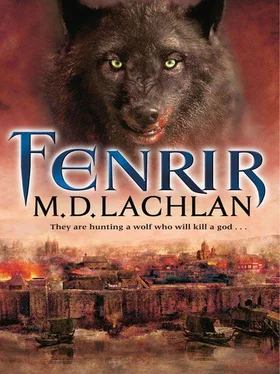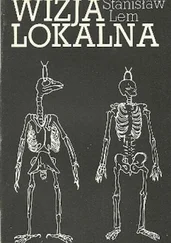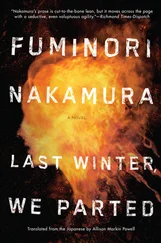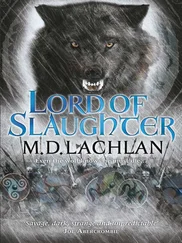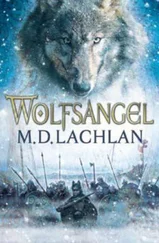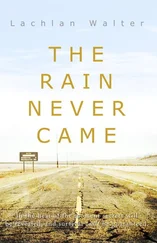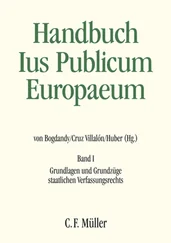M. Lachlan - Fenrir
Здесь есть возможность читать онлайн «M. Lachlan - Fenrir» весь текст электронной книги совершенно бесплатно (целиком полную версию без сокращений). В некоторых случаях можно слушать аудио, скачать через торрент в формате fb2 и присутствует краткое содержание. Жанр: Фэнтези, на английском языке. Описание произведения, (предисловие) а так же отзывы посетителей доступны на портале библиотеки ЛибКат.
- Название:Fenrir
- Автор:
- Жанр:
- Год:неизвестен
- ISBN:нет данных
- Рейтинг книги:5 / 5. Голосов: 1
-
Избранное:Добавить в избранное
- Отзывы:
-
Ваша оценка:
- 100
- 1
- 2
- 3
- 4
- 5
Fenrir: краткое содержание, описание и аннотация
Предлагаем к чтению аннотацию, описание, краткое содержание или предисловие (зависит от того, что написал сам автор книги «Fenrir»). Если вы не нашли необходимую информацию о книге — напишите в комментариях, мы постараемся отыскать её.
Fenrir — читать онлайн бесплатно полную книгу (весь текст) целиком
Ниже представлен текст книги, разбитый по страницам. Система сохранения места последней прочитанной страницы, позволяет с удобством читать онлайн бесплатно книгу «Fenrir», без необходимости каждый раз заново искать на чём Вы остановились. Поставьте закладку, и сможете в любой момент перейти на страницу, на которой закончили чтение.
Интервал:
Закладка:
The inhabitants of the house were streaming across the square, the women herding the children away. Eight of the Danish invaders came into the square — big men covered in tattoos, the one at the front carrying a large shield with the design of a hammer on it. His sword was drawn and he was pointing it at the naked man, warning him in some way. Not friendly.
The man was oblivious to him; he was tugging at something in the shadows. It was an arrow. It would not come free and, as he pulled it, the body of the wolfman came with it into the light.
‘No!’ said Aelis, and the man turned to her. She threw her hands across her face and peeked out from behind her fingers like a frightened child. He gave a rasping cry of exultation as he saw her and leaped towards the house. The big man with the shield cursed and Aelis scrambled across the room. She lost all composure, knocking over looms, falling over bales, crawling towards the opposite window. She pulled off the vellum covering it and crouched to look down into the river. It was three times her height beneath her.
She couldn’t jump, couldn’t bring herself to do it. She heard the creature make the floor below, his footsteps light and quick. She put a leg out of the window but brought it back again. The drop was too great. She stepped back inside the room and glanced around her. There was the hatch where the ladder emerged. She tried to kick the ladder away but it had been tied tight to the beams and she had nothing to cut it free with. She looked down, remembering the wolfman’s warning to cover her face. There, just visible in the weak light of the floor below, was a face looking back at her, its eyes sharp and pitiless as a bird’s. At first glance she thought that he was wearing a mask of some sort, but as he put his foot on the ladder she could see his face was a network of tiny scars, as were his neck and upper body. It was nothing like leprosy — in places the scars were neat and defined, more like a large pin had dug into him than like the ravages of disease.
He looked up and spoke to her in Latin: ‘Thing of darkness, death bringer, you will not escape me.’
‘Who are you?’
‘A man of honour,’ he said and leaped at the ladder.
And then Aelis was falling. She had done what she thought she could not and gone feet first through the window. The water hit her hard, forcing her wimple over her eyes, blinding her. She struggled for the surface, her skirts heavy and tight about her legs. She pulled off the wimple and cast it aside. The water was so cold, ice meltwater from the hills, crushing the breath from her body, but the current was not strong. The upstream bridge on the south side had partially collapsed. The Norsemen had made an abortive attempt to pile debris, bodies and whatever they could get their hands on onto the ruin to make a causeway to the city. They’d been beaten back but had succeeded in somewhat stemming the considerable force of the river. The downside was that the water was foul. Aelis clamped shut her mouth to avoid swallowing it and struck for the shore. Her country childhood served her well — she was used to swimming in rivers and lakes — though her skirts were terribly restrictive and she had to hold them above her waist and kick with her legs to make progress. Things were smashing into the water about her. A table leg went over her head, then something heavy splashed behind her. She coughed and shook, turned and saw a stream of cloth from a bale flying through the night. Her pursuer had no more arrows and was throwing all he could find. She hammered forward across the river, went under, panicked, her legs pumping wildly. Then she hit something. Solid ground was under her feet. She made one last effort and got to the bank.
She didn’t turn, just kept scrambling up, her flesh shaking on her bones with the terrible cold. She heard the voice of the thing behind her.
‘ I dag deyr thu! ’ he shouted, and then in Latin, ‘This is your death day, monster!’
4
Aelis clawed her way up the bank. She was on the south side of the river, though she couldn’t tell exactly where. That is, she knew where she was in relation to the city but not to the Norse camps. The invaders were on both sides, though she had no idea how far their control extended.
There was still a clamour at the tower on the bridge. To her alarm, she heard the invaders were retreating; the bells had changed their pattern to tell the people the Norsemen had been beaten back. The screams of the fighting were dying and the men-at-arms on the tower were shouting cat calls and insults after their enemies, goading them for running, asking where their famous Viking fury was now.
The enemy would be returning to his camp and Aelis realised that she might well be right in the middle of their retreat. Men were moving through the houses and huts. She saw the outline of someone with an axe across his shoulder, another man with a spear. They could be Danes or they could be her people, she couldn’t be sure. As soon as the bulk of the Norsemen moved to the main attack at the bridge, the Franks would come in from the forest to worry their camp. The number of invaders was so great that no victory could be gained, but they could injure a guard, steal a pig and, most of all, keep a few of the Danes from attacking the city. It was too risky to approach the dark figures, though. Who knew who they were?
Some of the houses were even still inhabited by Franks. It had been a mystery to Aelis why the Northmen had not taken the whole south bank, but her brother had explained it. The houses outside the city wall were very poor and the people many and strong from labour on the land. The Norsemen’s numbers were great, but not so great they could be profligate. They would take the houses, he said, but on their way back. They wanted slaves but had no intention of carrying them upriver if they ever got past the bridges of Paris. They’d be an encumbrance to further looting. They’d allow the Franks to feed and care for themselves until they returned, then they’d take them captive. The Vikings treated the Franks like a cook treats his hens, her brother had said.
She looked up to the weaver’s house, her body still convulsing with cold. The feathered man had gone, but then she saw another face at the window. It was the warrior with the hammer on his shield. He threw the shield into the water and, in an instant, leaped to follow it. Then another man came to the window and jumped too. They were chasing her, and there were a lot of them.
She blundered forward into the darkness of the houses, running as fast as she could. There was another splash behind her, and a shout of complaint as one of the Norsemen hit the river too close to a comrade. She had to find somewhere to hide for the night, to spy out the land and try to find some way back into Paris — or out into the friendly country beyond — before the next day. Even that wouldn’t be easy. She had lost her wimple in the river and her hair was uncovered. The Franks were tolerant people and women could even travel unchaperoned throughout their lands, but with her modesty so badly compromised, there was a chance she’d be taken for a whore for any man to use as he saw fit.
She could not approach anyone male, particularly at night, but if she could find a woman of her own people then she could explain her state of undress, borrow some sort of head covering and stay with her until morning. Then, with luck, she could get back to the city across what remained of the southern bridge. There was enough debris there to make it serviceable to anyone willing to wade and climb their way across. The few provisions the city managed to get came in that way.
A cloud took the moon and the night became very dark. She made her way left, as she knew the Norsemen were camped nearer to the westernmost bridge. She kept low and moved from shadow to shadow, knowing that she could as easily be killed by her own side as by the enemy. But she still couldn’t see who had possession of the houses and couldn’t risk going in.
Читать дальшеИнтервал:
Закладка:
Похожие книги на «Fenrir»
Представляем Вашему вниманию похожие книги на «Fenrir» списком для выбора. Мы отобрали схожую по названию и смыслу литературу в надежде предоставить читателям больше вариантов отыскать новые, интересные, ещё непрочитанные произведения.
Обсуждение, отзывы о книге «Fenrir» и просто собственные мнения читателей. Оставьте ваши комментарии, напишите, что Вы думаете о произведении, его смысле или главных героях. Укажите что конкретно понравилось, а что нет, и почему Вы так считаете.
